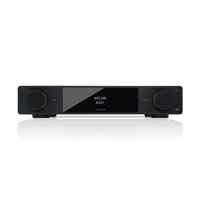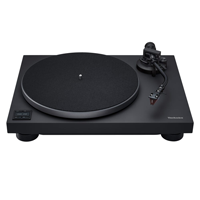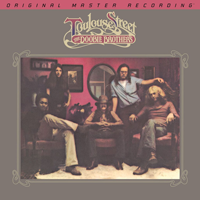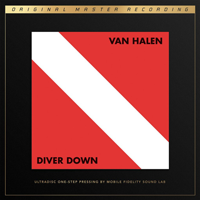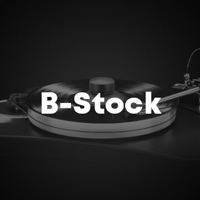Being Grateful
I was thinking this weekend about gratitude, and how grateful my wife and I are for our families, our health, and all the music that has made use the people we are today. Four weeks have passed since stay-at-home orders were enacted in Chicago. Weekends don't feel like normal weekends. There is not much of a reprieve from the work week when every day feels about the same. But that's exactly the time for gratitude. And sometimes, it takes something as profound as a large change from everyday life to give us the time and perspective to remember to be grateful for the things we have. I know this time has made an everlasting impression on me. Here's to when we can all come out of our homes and show each other much-deserved gratitude.
As if you couldn't see this coming, today, I am going to write about the Grateful Dead. First off, let's make something perfectly clear. I don't want to cause a stir, or get a bunch of letters from other Deadheads or people who are not fans. I like what I like. While many have tried to change my thinking about the band, I'm a really stubborn person (just ask my wife) and am quite happy with my relationship with the Dead. Elated, really.
Yes, I'm a Deadhead. A snobby one. I truly love Jerry Garcia. And not just because he was one of the most inventive and creative guitarists, but because he always seemed so cool. I love the songs of Robert Hunter, who can go head to head with America's all-time-best songwriters. I love bassist Phil Lesh, whose approach to the instrument is melodic and unique. He appears to solo throughout entire songs, his bass lines dancing around the rhythmic foundation. Not to be forgotten, drummer Bill Kreutzmann's jazzy style allows the sound of the band to open up, and Bob Weir's rhythm guitar parts form an integral part of the overall sound. I love the entire band in all of its guises, but the interplay between the aforementioned members really turned me on. My favorite era encompasses 1971 through 1974.
A little backstory on my intense love affair with the Dead. My first recollection is being in my early teens in the early 80s and seeing an older kid at school wearing a Dead t-shirt with skeletons and other iconography. I thought it had to be some type of metal band. Not for me. Then, in high school, some friends were getting into the band and played me some audience recordings from the mid 80s. I didn't get it. I was a budding audiophile and couldn't understand how anyone could listen to this crap. Sonically, the tapes were terrible. And that bearded guy everyone seemed to worship: Well, he didn't sound so good to these ears.
Later, a friend of a friend at college heard I didn't like the Dead. She found that unacceptable, particularly since she fully understood my deep love of music. She grabbed me, took me back to her sorority room, sat me down, put a pair of headphones on my head, and told me she was going to change my life. She played me "Unbroken Chain" off From the Mars Hotel. I may or may not have been a little bit high, but that moment skewed my life in ways I could never have predicted.
As an obsessive-compulsive music lover, once my interest is peaked, I go all in. I started to acquire tapes from a friend who got his tapes from a friend of David Ganz, a famous Deadhead who has a weekly radio show, "The Grateful Dead Hour," on which he plays choice performances. These tapes were sourced from master reels, and I was slowly introduced to the Betty-boards and other great-sounding soundboard tapes.
I began to develop a taste for early 70s Dead. By early 1971, Mickey Hart, the Dead's other drummer, had taken a sabbatical from the band, and an openness began to blossom. There was more space, along with the freedom to explore said space. Such expansiveness, in congruence with exceptional songwriting from Hunter, took me under its spell.
I was fortunate to see the band from the late 80s through the early 90s – about 25 shows total. I had fun at all of them. And while I saw some great moments on stage – especially during the spring and summer tours of 1989, performed a few years after Jerry emerged from a diabetic coma and had lived clean for a spell – I never witnessed anything like what was played in the early half of the 70s.
First up: Grateful Dead Europe '72
Grateful Dead is best represented by its live output. While some of its studio albums are masterful, like Workingman's Dead and American Beauty, the efforts are essentially blank canvases from which the represented songs would evolve and develop over the years in live settings. No other band has had its entire cannon of concerts dissected and made publicly available the same way as the Dead. Practically every note the band (and its subsequent iterations) played over the last six decades has been put to tape.
Europe '72 is an amazing achievement, especially considering that the band somehow convinced Warner Brothers Records then-Vice President Joe Smith to pay to have a multichannel recording truck parked outside of venues for an entire tour – in Europe, no less. How did the Dead pull it off? I can't imagine being one of the many Heads who toured Europe. No fewer than 22 concerts over six weeks throughout the U.K., Germany, the Netherlands, France, Denmark, and more. The shows were primarily staged in historic old halls. And, as the tapes prove, almost 50 years later, they produced many great recordings. I have a box set of the entire tour; every show painstakingly remastered from the multi-track tapes. It is long out of print, but you can hear the individual shows on streaming services.
Most Deadheads have an affinity for complete shows rather than collections that stitch together various performances. So why do I recommend Europe '72, a compilation of highlights from multiple shows? It's the perfect introduction to one of history's most prolific touring bands. You get a phenomenal selection of songs, all played and recorded with precision, and lovingly spread over six LP sides.
Here, you have iconic versions of Dead classics like "Jack Straw," "Cumberland Blues," "Brown Eyed Women," "Tennessee Jed," and "Ramble on Rose." As well as stellar performances of "Sugar Magnolia" and Truckin'." These songs were played consistently throughout the original band's 30-year career. Tunes such as "China Cat Sunflower" seamlessly segue into "I Know You Rider" and remain forceful examples of Weir's incredible, and incredibly underrated, rhythm-guitar skills. And, to my mind, Europe '72 contains the most breathtaking version of "Morning Dew." More than 10 minutes of a flawlessly executed, exquisitely paced performance, built to a magnificent climax. This band understood how to use dynamics to create and release tension, and in doing so, takes its audience on unforgettable rides.
I could write endlessly about the interplay between the members, and how every time the group played the songs on this 3LP set, the performances came out with differences – some subtle, some not. But Europe '72 is more than a historical time capsule of a band in its prime. It represents the most enjoyable way to introduce any music lover to the unforgettable songs and performances of one of America's most-loved, most enduring, longest, and strangest musical trips.
13th Apr 2020

